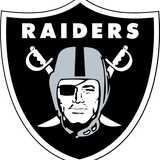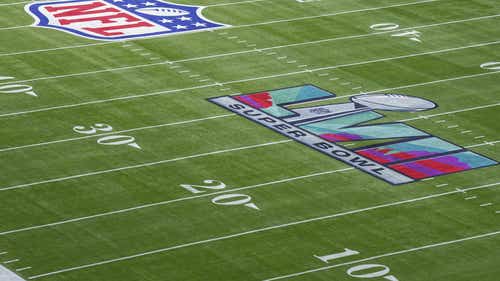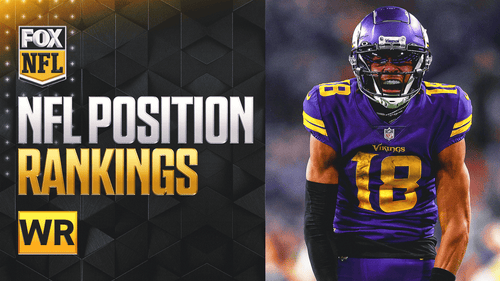
How Can We Describe the 2016 Oakland Raiders Through 9 Games?

Jun 15, 2016; Alameda, CA, USA; Oakland Raiders general manager Reggie McKenzie at minicamp at the Raiders practice facility. Mandatory Credit: Kirby Lee-USA TODAY Sports
Is the media missing context in describing the Oakland Raiders before their Monday Night Football matchup against the Houston Texans in Mexico City?
Through the weekend and all day Monday, you’ll hear analysts attempt to break down the Oakland Raiders and Houston Texans matchup in Mexico City.
Prior to the current season, the NFL hasn’t placed the Silver and Black in the primetime slot on a frequent basis. This year, the league scheduled consecutive Raiders games in the national spotlight with a bye week in between. As a result, broadcasters, analysts and talking heads have scrambled to the box score stats to analyze a team that’s been off the radar.
After consistently watching the Green Bay Packers, Dallas Cowboys, New England Patriots and Seattle Seahawks on Sunday and Monday Night Football, it’s very simple to rattle off thoughts about these clubs like natural reflexes. How about a Raiders team that’s still relatively unknown to the 31 NFL fan bases and casual fans?
After watching several sports pundits attempt to take a jab at what exactly the Raiders have become over the past 10 weeks, you’ll notice important context left out of the general ideas and assessments. In some cases, the altitude in Mexico City has been explained far better than a 7-2 Raiders team atop the AFC West division.
Don’t worry. We’ll fill in the blanks where it’s necessary. When hearing generalities about the Raiders, please refer to the following context for a full scope.
Nov 6, 2016; Oakland, CA, USA; Oakland Raiders strong safety Karl Joseph (42) gestures toward the crowd during a timeout against the Denver Broncos in the third quarter at Oakland Coliseum. The Raiders defeated the Broncos 30-20. Mandatory Credit: Cary Edmondson-USA TODAY Sports
What Most Analysts Say: The Raiders Defense is TerribleWhat Most Analysts Won’t Say: The Raiders Defense Has Improved
You’ll hear the first statement ad nauseam or something close to the following, “The Raiders have one of the worst pass defenses and give up 6.4 yards per play. Teams can go up and down the field on them.”
More from NFL Spin Zone
The above statement held true in the first two games before the coaching staff inserted No. 14 overall pick safety Karl Joseph into the starting lineup for Week 3. The assessment held some truth, to a lesser extent, up until Week 5 against the San Diego Chargers, who moved the ball without much resistance. However, since Week 5, the Raiders haven’t allowed 270 passing yards in a game.
With five new starters on the field playing against the top two passing offenses within the first two weeks, the averages will paint an ugly picture for the defense. Oakland fielded three new starters in the secondary and struggled mightily against the league’s best passers. What a surprise, right?
Analysts will ignore the fact that the coaching staff’s decision to insert their first-round pick into the lineup and sign linebacker Perry Riley toned down the leakage on defense. Don’t allow a poor start with a non-cohesive unit steer the narrative in the wrong direction for Ken Norton’s group.
The Raiders have also accumulated 15 takeaways through nine games. When playing poorly, it’s a bend-but-don’t-break defense, which isn’t terrible when forcing turnovers and providing a productive offense with additional possessions.
Nov 6, 2016; Oakland, CA, USA; Oakland Raiders quarterback Derek Carr (4) congratulates running back Latavius Murray (28) after Murray rushed for a touchdown against the Denver Broncos in the second quarter at Oakland Coliseum. Mandatory Credit: Cary Edmondson-USA TODAY Sports
What Most Analysts Say: The Raiders Offense is ExplosiveWhat Most Analysts Won’t Say: The Raiders Offense is Dynamic
The above evaluation doesn’t speak to the evolution of the Raiders attack. When describing Oakland’s offense as explosive, it’s an accurate description. However, it doesn’t go in-depth and may mislead some to depict Bill Musgrave’s unit as pass-reliant.
For those watching the Raiders versus the Denver Broncos in Week 9, you noticed quarterback Derek Carr didn’t throw a single touchdown. Yet Oakland dominated the matchup. In fact, Carr has thrown one or zero touchdown passes in four out of the team’s seven victories.
What’s the major difference between the Raiders defense from last year compared to this season?
The offense can exploit weaknesses, which shifts gears based on the opposition. In 2015, the Raiders had an explosive offense. Through nine games in 2016, it’s developed into a dynamic attack capable of piercing the secondary through the air or puncturing the front seven with the running backs.
Ball-carrier Latavius Murray may not reach 1,000 rushing yards in consecutive seasons, but he’s logged eight touchdowns as the finisher on offense. General manager Reggie McKenzie set out to find a complement to his starting running back and added two, DeAndre Washington and Jalen Richard, who’ve helped elevate the ground attack to No. 4 in the league.
With a top-five passing offense and ground attack, dynamic seems more appropriate than explosive when describing that side of the ball. Do you want chunk yardage with Carr throwing to wideouts Amari Cooper and Michael Crabtree? You got it. But you can also get bully ball with six offensive linemen and three capable running backs controlling the clock.
May 13, 2016; Alameda, CA, USA; Oakland Raiders coach Jack Del Rio (left) and general manager Reggie McKenzie during rookie minicamp at the Raiders practice facility. Mandatory Credit: Kirby Lee-USA TODAY Sports
What Most Analysts Say: Derek Carr Drives Team SuccessWhat Most Analysts Won’t Say: Reggie McKenzie Built a Contender
The NFL is a quarterback-driven league. As a result, signal-callers receive the bulk of the blame for losses and the majority praise for victories. In Carr’s case, he deserves recognition as a key component in the Raiders’ resurgence.
The third-year pro has thrown 17 touchdown passes and three interceptions. Unlike the rumors swirling around Aaron Rodgers’ leadership skills, Carr has his hand on the team’s pulse. He’s totally connected with his teammates. At the quarterback position, it means something significant to look your offensive linemen, wide receivers and running backs in the eyes and instill confidence in huddle—then deliver under pressure.
However, the Raiders’ success extends beyond quarterback play. As mentioned, Oakland has won four games with Carr throwing one or zero touchdown passes. He’s only thrown for 300 yards or more in three games. So, what’s missing in context when speaking about the rise in Oakland?
General manager Reggie McKenzie didn’t just add Carr, Cooper and edge-rusher Khalil Mack through drafts—he’s also signed impact free agents over the past two years.
Offensive lineman Kelechi Osemele‘s interior blocking has helped elevate the ground attack through nine games. Since signing with the team in 2015, Crabtree leads the team in touchdown receptions with 15 in 25 contests. Last year, the Washington Redskins released David Amerson, and he’s developed into a No. 1 cornerback in Oakland. This year, the Redskins cut Riley during the summer. Now, he’s listed as a top-5 linebacker in silver and black according to Pro Football Focus.
We’ll dig a bit further into McKenzie’s roster personnel decisions. He’s also shown a knack for signing undrafted talents who become notable contributors. Defensive lineman Denico Autry and wideout Seth Roberts came into the fold as unknowns during the previous year. Autry filled in admirably as a starter with three sacks. Roberts logged 480 yards and five touchdowns as a third receiving option and outstanding downfield blocker on screen plays.
This year, undrafted running back Jalen Richard has taken over special team duties as a kick and punt returner. The average Raiders’ drive starts at the 31-yard line, which ranks third-best in the NFL. Undrafted offensive lineman Denver Kirkland has filled tight end Lee Smith’s role as the sixth offensive lineman to seal the edge for running backs out of the backfield. Undrafted defensive tackle Darius Latham has added depth to the defensive line and bulk to the run defense over the past four games.
On the surface, Carr’s play puts the Raiders in a position to compete against tough competition. However, McKenzie deserves major credit for building the roster over the past two seasons with spot-on first-round picks, undrafted free agents and maneuvering through the free-agent market without unnecessarily breaking the bank or crippling the team’s cap flexibility.
This article originally appeared on











